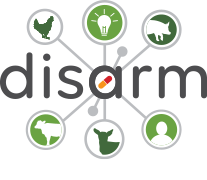In this section
In this section
Colostrum and Early Feeding
In mammalian species, colostrum acts as a natural vaccine to kick-start newborn animals’ immune systems. The antibodies absorbed from colostrum are the only protection young animals have against pathogens at the earliest stage of immune development. Adequate colostrum intake is of utmost importance in cattle and pigs, and relies on providing colostrum:
- Of good quality with high concentration of maternal antibodies, which can be checked using Brix refractometry or a colostrometer.
- In adequate quantities with frequent feeds during the first day of life (aim for a first feed volume of 10% of body weight if known is a good guide).
- As soon as possible after birth, since antibodies can only be absorbed through the intestines for a short period of time.
- Which was collected and stored hygienically to avoid bacterial contamination which can disrupt the absorption of antibodies, and in severe cases can lead to septicaemia.
After successful colostrum feeding in the first days of life, mammalian species should be fed an appropriate diet of milk, or milk replacer alongside solid feed to facilitate weaning. The weaning period can be a stressful time for animals and can be associated with negative effects on animal health and gut function. Limiting changes during this period by avoiding mixing groups and keeping the solid feed consistent from early life can help reduce the level of stress experienced by young animals and support their development into healthy adult animals.
In bird species, particularly broiler chicks, it is important to provide early feed and water to stimulate the intestinal development quickly after birth. This helps reduce stress experienced by chicks and supports better organ development leading to better gut health later in life. This results in a healthy, productive flock which require fewer antibiotics.

